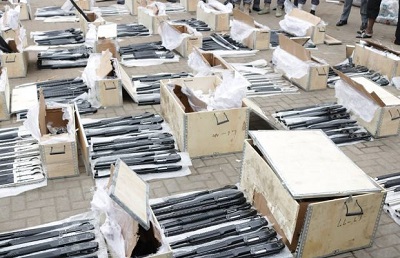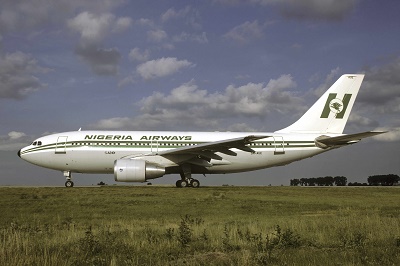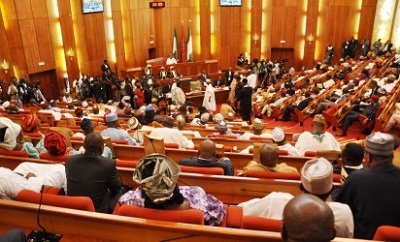National Security Vs Foreign Relations

“You don’t need a foreign policy expert to tell you empty threats and hollow promises don’t work. Ask any parent of a rebellious teenager. If you don’t make good on the threats, you’re asking for worse behavior next time.”- Kathleen Troia McFarland
Few months ago the mystery seizure of a container laden with 661 pump action rifles at the Apapa port rocked Nigeria. Several Customs officers and the agents were interrogated as the Nigeria Customs Service was seen to be serious with investigations on the anomaly. That consignment was from Turkey but no one bothered about the relevance nor saw a need to enhance the diplomacy between both nations in order to prevent the scenario from reoccurring.
Last week, the event occurred again as the Nigeria Customs Service (NCS) intercepted a total of four hundred and forty (440) pieces of assorted pump action riffles at the Tin Can Island Port. Whilst the Customs have refused to disclose the identity of the defendant, they have confirmed that the defendant and the consignment have been taken to the Federal Operations Unit (FOU) Zone ‘A’ Ikeja, no one has raised an eyebrow over the fact that the container originates from the same Turkey.
In another development, last week Kenya Airways conveyed a corpse from Ebola-affected Democratic Republic of Congo to Nigeria.
Although the deceased is a Nigerian, the airline brought the remains of the body without having all documentation that are required to process its clearance by the Department of Port Health Services, Federal Ministry of Health.
These incidents deviate from the underlying principles which from regime to regime, has served as a basis for the continuity that strikingly characterized the various relations of Nigeria with the rest of the world.
Nigeria plays a pivotal role in the maintenance and promotion of peace in Africa, as well as in other parts of the world. From the day Nigeria gained its independence (October 1, 1960) from the United Kingdom after decades of colonial rule, the nation has maintained a relatively consistent foreign relation considering the fact that the country had experienced varied forms of government within this period.
The objectives and principles of Nigeria’s foreign relation were specifically laid out in Section 19 of the 1999 Constitution. These are:
1) Promotion and protection of national interest.
2) Promotion of African integration and support for African unity.
3) Promotion of international cooperation for the consolidation of universal peace and mutual respect among all nations, and elimination of discrimination in all its manifestation.
4) Respect for international law and treaty obligations as well as the seeking of settlement of international disputes by negotiation, mediation, conciliation, arbitration and adjudication: and
5) Promotion of a just world economic order.
As these recent developments unfold one begins to wonder why President Muhammadu Buhari continued diplomatic shuttles across the world to push Nigeria’s foreign policy and draw support from the international community in addressing the country’s domestic challenges, hasn’t curbed these anomalies.
A nation’s foreign policy is the extension of its domestic policy and President Buhari had outlined the areas of security, economy and fighting corruption as three priorities of his administration. Perhaps, it is time to take a strong stand on nations that abuse Nigeria’s foreign relations.








